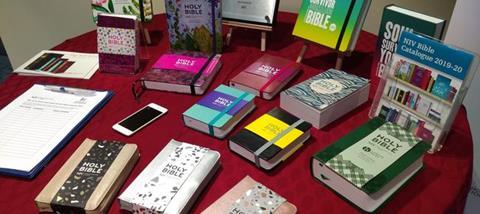
“We are a nation whose ideals were founded on the Bible.” These are not my words, but those of British Prime Minister Margaret Thatcher, who was speaking back in 1988. She warned that moving away from the Christian faith upon which the UK was built, would have devastating consequences for democracy.
Thatcher believed children should be educated on the role Judeo-Christian tradition had played in “moulding our laws, manners and institutions”.
“There is little hope for democracy if the hearts of men and women in democratic societies cannot be touched by a call to something greater than themselves. Political structures, state institutions, collective ideals are not enough. . . [Healthy democracy requires] the life of faith. . . as much to the temporal as to the spiritual welfare of the nation.”
Thatcher could have expanded her comment to cover the source of British laws. ‘Rule of Law’ is one of Britain’s greatest gifts to the world. It means that the Prime Minister and the Queen have power, but only to do good. They have no authority to violate a citizen’s rights because they are servants of the King of Kings.
As Britain’s early political philosophers, from Samuel Rutherford to John Locke realised, God’s son gave his own life to give God’s children eternal life. Therefore, Providence gives to governments power only to serve the sovereign citizens.
Britain has functioned fairly well without a written constitution because the Justinian Code (529—534 AD), not the Positivist Law, made Britain a law-abiding civilization. That Code was an outworking of the Chalcedon Church Council (451 AD), which had realised that Jesus of Nazareth was not a creature who became God. He was God who became man in order to restore his father’s kingdom on earth to God’s children who love him and therefore obey his commands.
It was literary English that made the Bible’s worldview Britain’s worldview, for literary English is a product of Bible translation. Chaucer’s Canterbury Tales (1387 - 1400) transmitted to the people the language and worldview of the Wycliffe Bible (1382-1395). Shakespeare was nurtured on the Geneva Bible (1557-1560) which was based upon William Tyndale’s (1494 – 1536) translation. John Milton’s Paradise Lost (1667) and John Bunyan’s Pilgrims Progress (1678),the number two bestseller after the Bible, taught the language and worldview of the Tyndale, Geneva and the King James Bible (1611).
I do not know if Thatcher realised that Great Britain’s basic philosophical/ethical assumption that words can and ought to communicate truth came from the Bible. Paganism, Buddhism, and Postmodernism reject that assumption because they do not believe that the Word (logos) existed before humans did.
If words, rationality, thoughts are products only of “flesh and blood” (brain chemistry) then the best they can do is to express our feelings, not truth. The reason we increasingly live in a post-truth culture is because society has rejected the biblical view of absolute truth.
British jurisprudence was built on the ethical foundation following Jesus and his apostles: a witness will testify to the truth, the whole truth and nothing but the truth. Likewise, the Press was honoured because news reporters were witnesses to the truth. They were not expected to be spinning stories to please their paymasters.
Thatcher could have gone on to explain that the Bible’s logo-centric worldview made Britain an educated, thinking and scientific civilisation. Without the Bible, Britain could not have become the birthplace of the Bill of Human Rights, a pioneer in compassionate/scientific health care, and the orchestrator of the industrial revolution. Without the Bible, Britain would not have abolished the slave-trade and slavery, a move which hurt its economic interests.
Thatcher could have discussed family and the empowerment of women and children, for it was the Bible that prevented a British monarch from having more than one legal spouse. Its sexual ethic and philosophy of marriage required powerful monarchs to seek the Church’s permission to divorce.
Thatcher’s point is so profound that I am writing a four-volume work on how the Bible created the modern world. The relevant point is that the Prime Minister wasn’t giving a new revelation. She simply confirmed what Britain already knew.
Her Majesty, Queen Elizabeth II, was crowned on Tuesday June 2, 1953. During the Service, immediately after taking her Oath of Office, she laid her right hand upon the Bible and said: “The things which I have here before promised, I will perform, and keep. So help me God.”
The Queen then went on to kiss the Bible, sign the Oath and return to her chair. Then the Archbishop of the Church of England and the Moderator of the General Assembly of the Church of Scotland presented the Bible to her, saying:
“Our gracious Queen:
to keep your Majesty ever mindful of the law and the Gospel of God
as the Rule for the whole life and government of Christian Princes,
we present you with this Book,
the most valuable thing that this world affords.
Here is Wisdom;
This is the royal Law;
These are the lively Oracles of God.”
Dr Vishal Mangalwadi is a social reformer, political columnist and author of several books, including his latest This Book Changed Everything: The Bible’s Amazing Impact On Our World



























